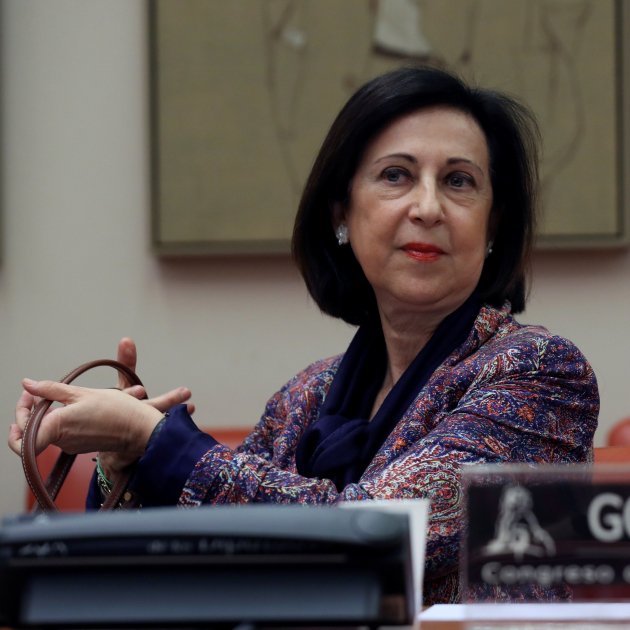The Spanish defence minister, Margarita Robles, has completely ruled out that the talks to take place at the Spain-Catalonia dialogue table could establish a Catalan judicial authority, even if this only involved recovering the powers approved in Catalonia's 2006 Statute of Autonomy, subsequently rejected by the Constitutional Court. In an interview with Europa Press, Robles asserted that if there were a new Statute in Catalonia, the powers that were annulled in the controversial 2010 decision by the court could not be re-incorporated, especially those referring to the proposed Council of Justice of Catalonia.
The defence head, a judge by profession and a member of Spanish justice's own governing organ, the General Council of the Judiciary (CGPJ), considers that this transfer, for the only one of the three branches of government which does not have its own structure at Catalan level, is not possible. "With the constitutional framework, there can only be a single Judicial Council for all of Spain," she argued, stressing that "in this specific case, the ruling of the Constitutional Court, at the time, was a correct ruling."
According to Robles, governing bodies for the judges in Spain's autonomous communities "are not possible" because in her opinion "there must be one single Council". However, she points out that "another matter would be strengthening a body that already exists at the moment within the autonomous regions, which are the governing chambers that exist in all the High Courts".
The pardons
On the other hand, the defence minister gave a positive assessment of the pardons granted by the Spanish government to the nine pro-independence political prisoners. She admits that in politics it is sometimes necessary to make decisions that "are not easy" but justified it to "promote social coexistence in Catalonia".
Robles recalled that she comes from the judicial world and that sometimes "the best complement that can be added to justice is generosity." And this, she said, "was what the pardons represented at the time they were given: an initiative aimed at social coexistence, dialogue and tolerance." In addition, she considers that, on the part of the Spanish government, there was the utmost respect for the sentence handed down by the Supreme Court and is therefore convinced that the court will not revoke the pardons granted: "It is a scenario that I sincerely do not contemplate," she added.
The minister has rejected the idea that either the Basque or the Catalan governments are "blackmailing" the Spanish government through their demands for transfers of competences and investments: "I do not agree at all with this statement," she said.
In her opinion, the Sánchez executive is governing "with all Spaniards in mind" and she thus believes that in times of crisis - like the present - partisan politics should be set aside. In fact, she seeks recognition for the process of "co-governance" with the autonomous communities that she believes has taken place during the pandemic. Robles defended the creation of a "climate of re-encounter" with Catalonia and has asked the Catalan president, Pere Aragonès, to govern for all of Catalonia "because the majority are not in favour of independence".
